ILL
ILL
The Institut Laue-Langevin (ILL) is an international centre for research in the field of neutron science and technology. Neutrons are used at the ILL to probe the structure and dynamics of a broad range of materials at molecular, atomic and nuclear level. As a world-leading centre for neutron science, the ILL provides scientists with a very high flux of neutrons feeding some 40 state-of-the-art instruments, which are constantly being developed and upgraded.
Science and technology at ILL
Neutrons often provide crucial information, which would be almost impossible to obtain in any other way. Thanks to the versatility of neutrons, the scope of the research carried out at ILL is very broad, embracing among other things condensed matter physics, chemistry, biology, materials and earth sciences, engineering, nuclear and particle physics.
The instruments at ILL are divided into four Groups: Diffraction, Large Scale Structures, Spectroscopy and Nuclear and Particle Physics.
As a service institute, ILL makes its facilities and expertise available to visiting scientists from all over the world. Every year about 1400 researchers from more than 30 countries visit ILL to perform over 800 experiments.
Partnering with ESS
In BrightnESS, ILL will contribute to the production of large area detectors based on thin films of Boron-10, through Work Package 4 (Innovation of Key Neutronic Technologies: Detectors and Moderators). This new technology, invented by ILL and subsequently developed with ESS, alleviates the need for detectors based on Helium-3, which is now too scarce to use. ILL also contributes to BrightnESS WP6: Collaboration, Communication and Dissemination.
The European Spallation Source collaborates with ILL on detector technologies, more specially the Multi-Grid Detector. In addition to this collaboration, key ESS personnel have come from ILL and some important ESS instrument design and engineering will take place at the facility.
ILL cannot contribute directly (cash or in-kind) to ESS since the ILL’s Associate and Member countries are doing this. European projects like BrightnESS and SINE2020 are therefore crucial in levering the expertise of ILL (and other European facilities) for the benefit of ESS. Otherwise, ILL scientists and engineers are heavily involved in a wide range of ESS advisory panels and review committees.

The Institut Laue-Langevin is situated in Grenoble, by the French Alps.


 is funded by the European Union Framework Programme for Research and Innovation Horizon 2020, under grant agreement 676548.
is funded by the European Union Framework Programme for Research and Innovation Horizon 2020, under grant agreement 676548.